Biological ScienceProgram
School of Agricultural Sciences

Program Overview
 AWARD
AWARD
B.Ag. Sc (School of Agricultural Sciences)
 DURATION
DURATION
4Y
 SCHOOL(S)
SCHOOL(S)
School of Agricultural Sciences
 Focus of Study
Focus of Study
Applied Microbiology, Biotechnology, Food and Nutrition Sciences, Applied Biochemistry and Chemical Biology, Applied Plant Sciences
Biological Science Program
School of Agricultural Sciences
Program Introduction
The Biological Science Program is a collaborative effort by the School of Science and the School of Agricultural Sciences. It aims to nurture future researchers through a comprehensive curriculum that spans both fundamental and applied biological sciences. Students benefit from courses, experiments, and special lectures delivered by distinguished professors from around the world. The core curriculum includes Basic Genetics, Biochemistry, Cell Biology, Physiology, Microbiology, and Bio-organic Chemistry. While the School of Science focuses on fundamental biological research, the School of Agricultural Sciences emphasizes biotechnology and applied biosciences. Below, we highlight the distinctive features and opportunities of the Biology Program at the School of Agricultural Sciences.
Course Highlights
The Biology Program at the School of Agricultural Sciences offers students a comprehensive education in biological sciences with a strong focus on applied biosciences related to microorganisms, plants, animals, and biochemical processes. The curriculum is designed not only to build a solid foundation in basic scientific principles but also to teach students how to apply these principles to address real-world challenges in agriculture, the food industry, and the pharmaceutical sector. In addition to theoretical coursework, the program emphasizes hands-on experience. Students undergo a full year of experimental training before selecting a research laboratory for their graduation thesis. Laboratory selection is supported through a series of lab visits and optional short-term internships, helping students make informed decisions about their research interests. This program offers an excellent foundation for diverse career paths, including both basic and applied research, as well as positions in the food, pharmaceutical, and chemical industries. If you are passionate about biology and have a strong background in chemistry and mathematics, this could be the perfect program for you!
Why Nagoya University’s G30 Biological Science Program – School of Agricultural Sciences?
- Small class sizes (10–15 people) with a strong network of students, professors, and alumni who pursue careers worldwide.
- All classes are taught in English, while many students actively learn Japanese to a business proficiency level, giving them more career options.
- A wide variety of career options available in both industry and academia.
Curriculum
1styear
Japanese Language, Liberal Arts & Basic Courses
Take foundational courses to ease into life at Nagoya University:
- Fundamentals of Biology I/II
- Laboratory in Biology
- Fundamental Courses in Natural Sciences
2ndyear
Basic Specialized Courses
Start building your biology foundation by taking the following basic courses:
- Genetics I/II
- Biochemistry I/II
- Cell Biology I/II
- Bioagricultural Science Laboratory I
- Physiology and Developmental Biology
3rdyear
Specialized Courses & Laboratories
Start deciding on your specialization through specialized elective courses:
- Cell Biology III
- Biochemistry III
- Bioagricultural Science Laboratory II
- Specialized Elective Courses
4thyear
Research and Thesis
Complete your research on your chosen specialization/field:
- Seminar
- Graduation Research in Bioscience
* Note: This curriculum outline serves to show a snapshot of what the program has to offer and does not list all graduation requirements. Please refer to the program’s Graduation Requirements found on the admissions website.
Related Links
How to Apply
The Biology Program at the School of Agricultural Sciences offers two application rounds: the first in November–December and the second in January. Please click on the “Apply Here” icon above to view the full application instructions.
Below, you will find a selection of recommended standardized test scores for students interested in applying to the Biology Program at School of Agricultural Sciences.
Detailed eligibility criteria and application requirements are provided in the Application Guidelines available on the Apply Here page.
Recommended Scores
- SAT total score approx.1400 or more
- SAT Math socre approx. 700 or more
- IB 38/42 or more: MathHL/ChemHL/BioHL 6 or 7
- A-Level: AAA or more
Student Voice
4th Year Indonesia
What sparked your interest in the G30 Biological Science Agriculture program?
Ever since I was young, Japan has always been a big part of my life-electronics, food, TV shows-everything came from Japan. Naturally, this made Japan one of my top choices for university. I chose the G30 program at Nagoya University because of its use of English as the primary language and its wide range of courses. Among many, I chose the Bioagricultural Sciences program as it aligned with my future plans to work in the food or cosmetics industry. For new students, studying in a foreign country is quite the rare opportunity. Aside from focusing on your studies, making connections and enjoying your time here is important too!

What courses did you take in high school?
I applied for the university using my A level grades in Chemistry, Physics, and Mathematics, which were all A*s.
- Mathematics
- Biology
- Chemistry
- Physics


Program Video
Career Path
Your Future Career
The majority of graduates enter graduate schools of Nagoya University or other prestigious international and Japanese universities and pursue further studies related to biological science. Others find employment in the food industry, biotechnology, agroindustry, health and pharmaceutical industries, as well as in government offices.
Examples of Career Paths
Academia
- Nagoya University
- University of Oxford
- Delft University of Technology
Employment
Private enterprises of the food industry, biotechnology, agroindustry, health and pharmaceutical industries, as well as in government offices.
- Amano Enzyme Inc.
- KYOWA HAKKO BIO CO.,LTD.


